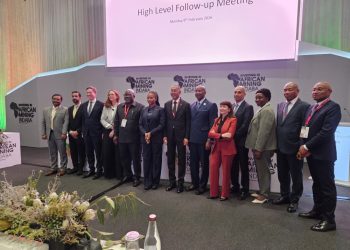
Namibia’s 15 cutting and polishing factories have processed and exported polished diamonds valued at more than N$21 billion between 2021 and 2024, with exports worth over N$7 billion recorded in the 2022 financial year alone.
This was revealed by Deputy Prime Minister and Minister of Mines, Energy and Industry, Natangue Iithete, who said the sector currently employs 1,430 workers, of whom approximately 81% are Namibian citizens.
“The remaining 19% are expatriates, reflecting our commitment to local employment while maintaining essential expertise. It is crucial that we sustain this balance to support the industry’s growth,” Iithete said.
He noted that ten factories owned by customers of the Namibia Diamond Trading Company (NDTC), including Sightholders and Enterprise Development Programme (EDP) companies, account for 86% of total employment in the cutting and polishing sector. According to the Minister, 62 Namibians hold management positions across 12 of these factories.
“The diamond industry has significant socio-economic potential for Namibia. However, we face serious challenges from a global downturn in demand that has forced mines to reduce production. This threatens jobs and government revenues, underscoring the need for resilience and innovation in our sector,” Iithete warned.
The Minister emphasised that NDTC applies strict conditions for granting and maintaining Sightholder status.
“These include financial compliance with international reporting standards, operating cutting and polishing factories within Namibia, and meeting a minimum annual purchase threshold of US$15 million to sustain factory viability,” he explained.
Iithete stressed that contract terminations are not taken lightly.
“The decision to terminate Sightholder contracts is based primarily on a company’s inability to meet financial and operational compliance criteria, including minimum purchase requirements. These measures are necessary to ensure the sustainability and competitiveness of Namibia’s diamond industry,” he said.
In response to factory closures and job losses, Iithete said the Ministry, together with NDTC and the Diamond Manufacturers Association of Namibia (DIAMAN), works to find alternative employment for affected workers.
“We work closely with companies, industry associations, and stakeholders to minimise job losses in the event of factory closures. Past collaborations have helped us successfully find placements for displaced workers, and we remain committed to protecting livelihoods amid difficult market conditions,” he said.
Iithete also highlighted NDTC’s downstream beneficiation efforts, particularly the Enterprise Development Programme, launched in January 2023, which aims to train Namibians to participate meaningfully across the diamond value chain.
“The Enterprise Development Programme is designed to empower Namibian citizens by equipping them with skills to actively participate in the diamond value chain. Despite ongoing global market challenges, the programme’s companies have exported significant volumes and continue to provide meaningful employment,” he said.
There are currently twelve factories operating in Namibia’s cutting and polishing sector: ten NDTC Sightholders and two EDP companies. Of these, five Sightholder factories are wholly foreign-owned, while Namibian citizens hold shareholding stakes of between 26% and 41% in the others.
Since 2021, NDTC Sightholder companies have invested around N$500 million in upgrading infrastructure and technology in Namibia, with an additional N$70 million investment planned over the next 12 months to expand operations and increase capacity.
Iithete reaffirmed that the Diamond Act No. 13 of 1999 allows both Namibians and non-Namibians to participate fully in the country’s diamond sector, provided they are properly licensed.
The Minister also indicated that the government is working on new policies to increase local benefits from Namibia’s diamond and mineral resources.
“We are developing reforms to ensure that Namibians benefit more fully from their country’s mineral wealth. Our goal is to create an inclusive industry that supports sustainable economic growth and delivers tangible benefits to our citizens across all levels of the diamond value chain,” Iithete said in the National Assembly.







